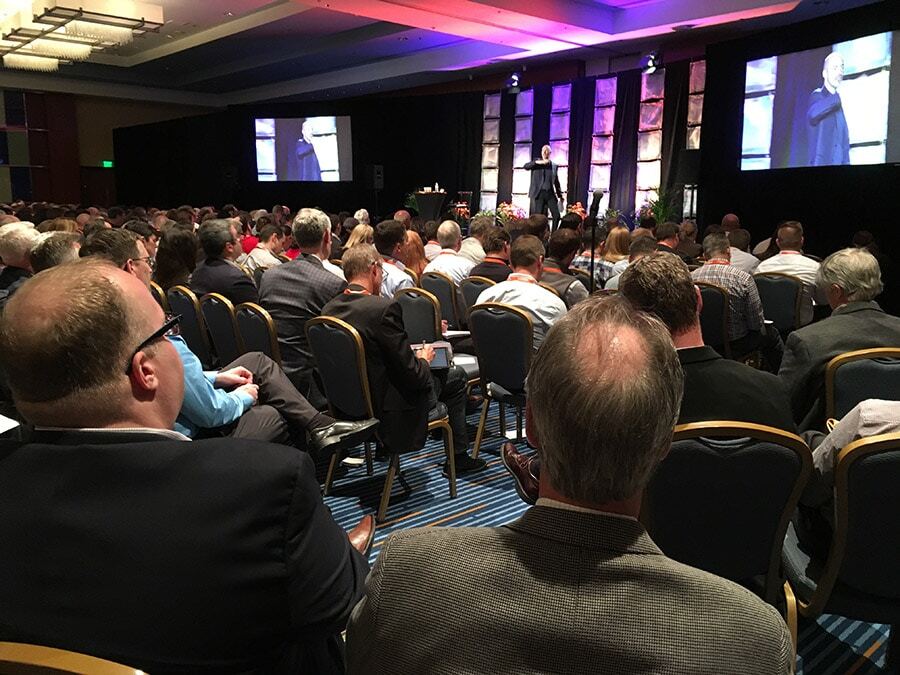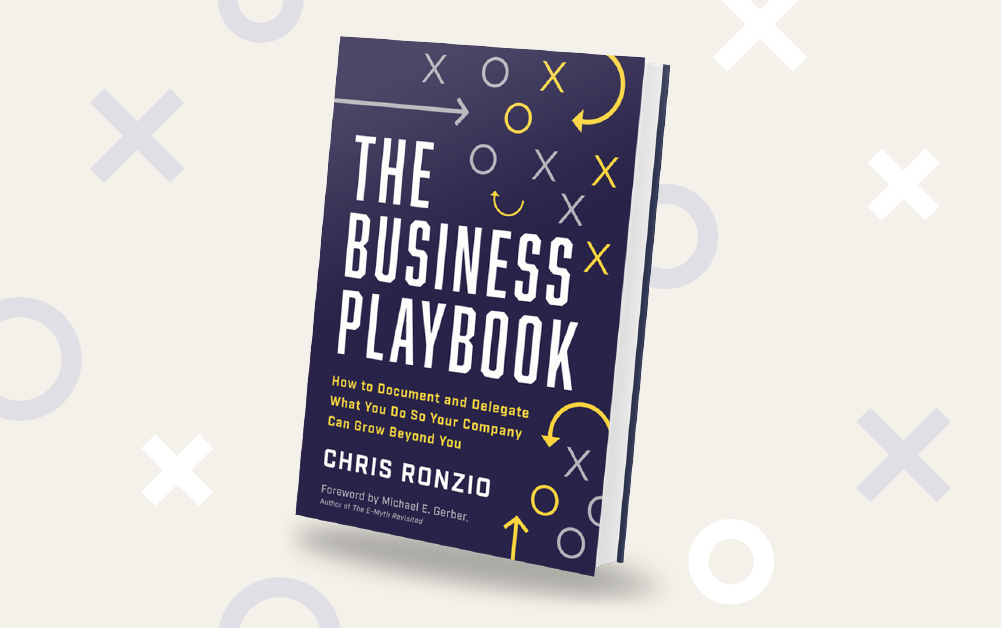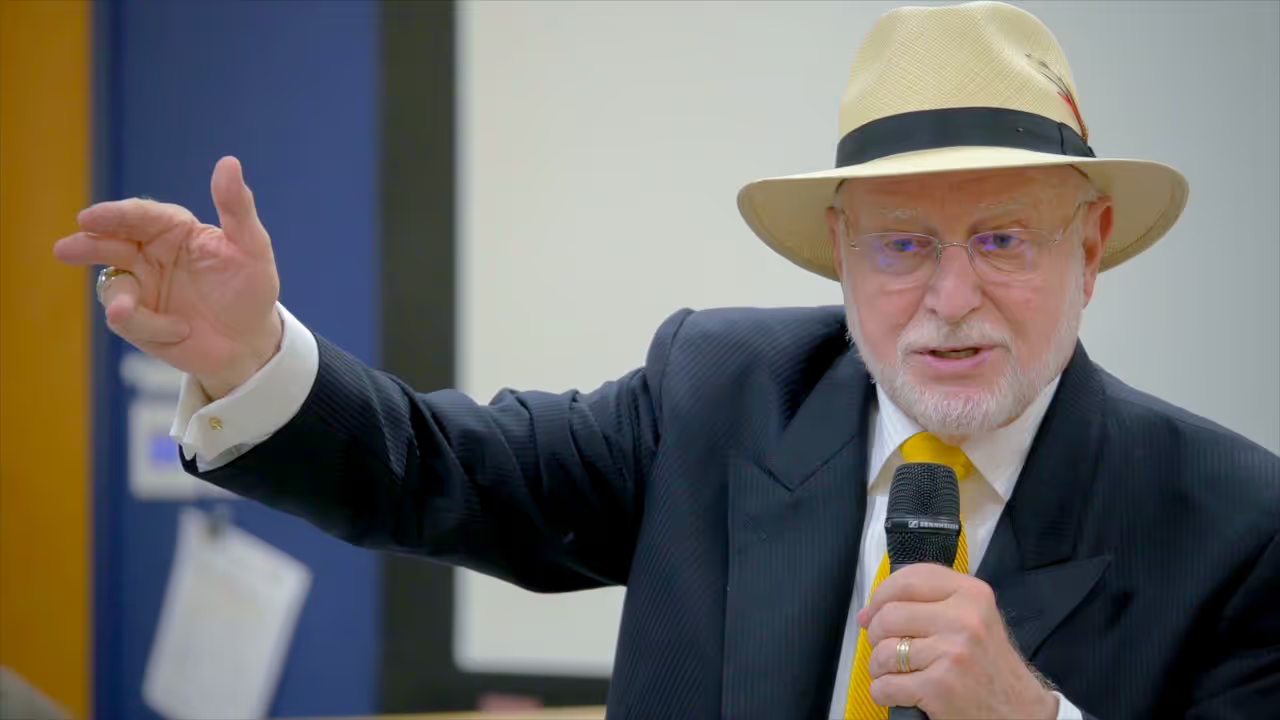
Articles
5 Tips For Making The Entrepreneurial Leap
January 14, 2022

Since the age of 21, EOS founder Gino Wickman has been obsessed with helping entrepreneurs get what they want from their businesses. But 30 years later, he’s decided to narrow his focus.
So, instead of helping rooted entrepreneurs who already have a business, Gino is going after entrepreneurs in the making. AKA the people who want to be entrepreneurs, but haven’t made the leap yet.
Now, Gino’s mission is to impact and help 1M entrepreneurs in the making over the next 10 years. And recently, Gino joined our CEO Chris Ronzio on the podcast Organize Chaos to talk about his lofty goal.
They also talked about Gino’s newest book, Entrepreneurial Leap, which helps readers decide if entrepreneurship is right for them. Plus, the book also features the stories and mistakes of successful entrepreneurs and experience-backed tips for starting the entrepreneurial journey.
Here are 5 tips Gino shared for making the entrepreneurial leap:
1. Confirm that you have the entrepreneurial traits
Gino says the biggest problem right now is that everybody wants to be an entrepreneur. But, in reality, he believes only 4% of the population possess the innate traits to be one.
“In the ‘70s and ‘80s, everybody wanted to be a rockstar. Now, everybody wants to be an entrepreneur, and it’s really dangerous because not everyone is an entrepreneur,” Gino explained.
So, before you take the entrepreneurial leap, Gino suggests confirming whether or not you’re even an entrepreneur in the making. And he even offers a free assessment tool that tests if you have these entrepreneurial characteristics:
1. Passionate
2. Problem-solving
3. Driven
4. Risk-taking
5. Responsible
And a sixth trait: whether you were born with these tools. Meaning, the first 5 characteristics come naturally to you. Because they’re not traits you can easily learn or pick up along the way.
“I’m going to break a lot of hearts with this project [saying not everyone can be an entrepreneur]. But at the same time, I’m going to find the 4% wherever they’re hiding in the world,” Gino told us.
In fact, he believes most entrepreneurs in the making are either lost, confused, or mislabeled derelicts. “They’re in the corporate world, they’re in the military, and they’re in the prison system,” Gino explained. And he wants to use his message as a means to reach them.
But if you don’t have all six traits (or scored below 90 on the assessment), it doesn’t mean you can’t be self-employed. Because Gino says you can still own a business - as a side hustler, freelancer, or solopreneur.
“If you don’t have the 6 essential traits, you can still be a sole proprietor. But there’s probably a good chance you’re not going to build an empire.”
<blockquoteauthor>Gino Wickman, author of Entrepreneurial Leap and founder of EOS Worldwide<blockquoteauthor>
At the end of the day, you’ll make your own decision on whether being an entrepreneur is right for you. Because there is no reason you can’t be an entrepreneur if you don’t pass the assessment. There just might be a bigger risk compared to individuals who have these innate traits.
2. Have patience on your entrepreneurial path
Once you’ve confirmed your entrepreneurial spirit, it’s time to shift your thinking. Gino shared, “Most people with [the entrepreneurial] makeup want everything this week, this month, this year. And there’s so much urgency.”
Gino was the same way once, wanting to accomplish everything as soon as possible. But at age 35, Gino learned a lesson that transformed his life.
“When you shift your mind to 10-year thinking, there’s a calm and patience that comes over you,” Gino explained. “Your thinking is clear, you have better ideas, and ironically you get there faster.”
In other words, you eliminate the stress of achieving goals short-term when you approach your business long-term. And, as a result, you’re more mindful and intentional about what the next step should be.
For instance, take a look at the goals you planned for next month. Then, see if you can extend any of your objectives (AKA the most difficult ones) to 5 or 10 years from now. Take daily action toward your goals and gauge your progress along the way.
“Work hard toward something, have goals, and certainly try and accomplish it as fast as you can. But ease up on the urgency.”
By shifting your mindset and thinking about your goals as accomplishments to be completed in years versus months, you are removing the stress of short deadlines. Plus, you have more time to focus on those goals and complete them to the best of your ability.
3. Work in the industry before you take the leap
Gino says that once you shift to long-term thinking, you might even decide to hold off on your entrepreneurial leap for a bit. In fact, Gino recommends it - he believes every entrepreneur in the making should work in the industry they’re interested in for a few years.
“Think about the business you want to start, and then go work in that industry or for an entrepreneur that’s built a business like that,” Gino shared. “It might take 2, 5, or even 10 years before you take your leap. But go get your feet wet and make sure you love [the industry] first.”
For example, maybe you want to open an empire of barbershops. Before opening your first shop, consider working for a barbershop owner who has built their own collection of barbershops.
That way, you can see firsthand what the day-to-day business of running a barbershop is like. And if you have a knack for systematizing that type of business.
On the other hand, you might already know you’re passionate about the industry and feel ready to take the leap tomorrow. But even then, it still helps to work in the industry first.
That way, you're fully prepared for the obstacles that come up in that industry. And before you jump in head-first, you can see what business type and size is right for you.
.gif)
4. Find a mentor to jumpstart your success
While it’s not a requirement, Gino says finding a mentor can act as a jumpstart for your entrepreneurial journey. Because with a mentor, you’ll have an experienced business leader who you can go to with all your questions. You can skip the learning curve that comes with starting a business all on your own.
So, Gino suggests finding an entrepreneur who has accomplished what you want to do, and more importantly, see if they’ll mentor you.
For instance, let’s say your ideal goal is building a $10M company in the construction industry. You could seek a mentor who’s already built a $10M construction company. Then, reach out to them and see if they would be interested in mentoring you.
Gino’s rule of thumb is to reach out to 5 or even 10 potential mentors. Because 80% of them will tell you no. “These are busy people, so you’ve got to do the work to find them,” Gino said.
He suggests asking your prospective mentor if they’ll meet with you for just an hour. Use the time to share your stories. And if the relationship feels good, just ask them if they’d be willing to be your mentor.
If the other entrepreneur accepts, set up a structure for your mentoring relationship. You could plan on meeting with your mentor every 90 days. And during that time, plan on asking them 1-3 questions. Gino even has a free mentoring tool to do some of the heavy lifting for your prospective mentor.
Whomever you choose, having a mentor will be incredibly beneficial for your entrepreneurial leap. Because mentors can introduce you to others in the industry. They act as a sounding board for your frustrations. And they can use prior experiences to help you navigate common obstacles.
5. Learn from other entrepreneurs’ mistakes
In one section of his book, Gino provides real-world stories of entrepreneurs who were “in the making” once, too. And he shows both a dream scenario and a nightmare scenario of the day-in-the-life of an entrepreneur.
Here’s a dream scenario: let’s say an entrepreneur has scaled their business and built a team of capable employees. So, the employees take care of day-to-day operations while the business leader oversees the big picture for their empire of businesses. All operations are streamlined and automated, like a well-oiled machine.
Meanwhile, let’s look at the nightmare scenario: a business owner is still up to their neck in the day-to-day tasks. They can’t take time off because the business can’t operate without them. And instead of enjoying their entrepreneurial journey, they’re stressed by it 99% of the time.
But Gino says you can avoid the nightmare aspect. He shares the 8 critical mistakes almost every entrepreneur makes while building their business:
1. Not having a vision
2. Hiring the wrong people
3. Neglecting your employees
4. Not knowing your target customer
5. Charging too little for your product/service
6. Steering away from your values
7. No budget for where you spend your money
8. Not crystallizing roles and responsibilities
And while all of these are crucial mistakes to avoid, Gino says the biggest problem is the last one. Because as you’re growing the business, you first need to create an organizational structure for your organization. That way, you know what everyone in the business is supposed to do so day-to-day operations run smoothly.
AKA, you should have some sort of business playbook.
“Structured organizations with clear roles and responsibilities are close to twice as efficient, twice as productive, and getting twice as much done.”
Start by building an org chart (or what Gino calls an EOS and accountability chart) that lays out who does what in your organization. It will also help you identify the primary functions of your business.
Then, as you bring in new employees, just make sure they know what function they serve and what role they play. That way, they know their responsibilities and know how they can best contribute to the business.
As a result, Gino says, “You’ll be much more efficient because [the business] is much less chaotic. And you’ll have better timing on when to hire and when you’re truly reaching capacity.”
Above all, Gino wants entrepreneurs in the making to know whether or not they’ve got what it takes to run a successful business. And that entrepreneurial success won’t happen overnight.
But, if you’re ready to take the entrepreneurial leap, take action, be patient, and do your best to avoid critical mistakes. You’ll be able to build a successful business and witness progress over time.
Similar Blog Posts











